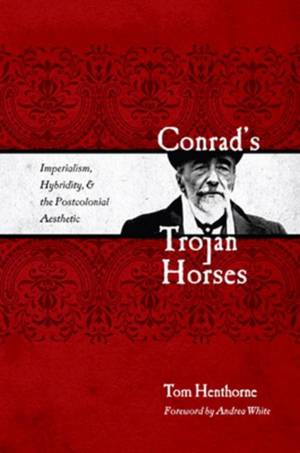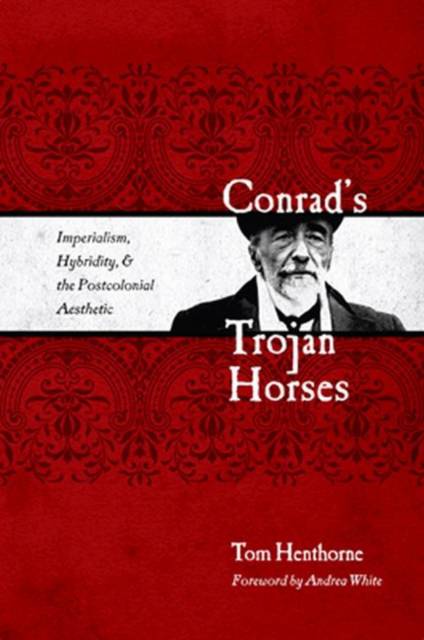
- Afhalen na 1 uur in een winkel met voorraad
- Gratis thuislevering in België vanaf € 30
- Ruim aanbod met 7 miljoen producten
- Afhalen na 1 uur in een winkel met voorraad
- Gratis thuislevering in België vanaf € 30
- Ruim aanbod met 7 miljoen producten
Zoeken
Conrad's Trojan Horses
Imperialism, Hybridity, and the Postcolonial Aesthetic
Tom Henthorne
Hardcover | Engels
€ 55,95
+ 111 punten
Omschrijving
With references to his work appearing everywhere from the New Yorker to The Simpsons, Joseph Conrad remains one of the twentieth century's most widely discussed literary figures. And yet it may be that an abundant scholarship has pigeonholed Conrad as an early modernist. Tom Henthorne counters that Conrad's work can be best understood in relation to that of such early twentieth-century writers as S. K. Ghosh and Solomon Plaatje--postcolonialists who developed innovative ways of cloaking their anti-imperialism when working with British publishers. In Almayer's Folly, An Outcast of the Islands, and his first short stories, Conrad attacks imperialism overtly. Yet as he began to work with more conservative publishers to acquire a larger, imperial audience, he developed a Trojan Horse strategy, deliberately obfuscating his radical politics through his use of multiple narrators, irony, free indirect discourse, and other devices that are now associated with modernism. Sensitive to the breadth of his prospective audience, Henthorne offers an engaging and accessible analysis of Conrad's canon, from the early novels and short stories to the major works, including The Nigger of the Narcissus, Heart of Darkness, Lord Jim, and Nostromo. He also considers critical responses to Conrad and the influence Conrad has had upon modernist and postcolonial writers.
Specificaties
Betrokkenen
- Auteur(s):
- Uitgeverij:
Inhoud
- Aantal bladzijden:
- 288
- Taal:
- Engels
Eigenschappen
- Productcode (EAN):
- 9780896726338
- Verschijningsdatum:
- 15/07/2008
- Uitvoering:
- Hardcover
- Formaat:
- Genaaid
- Afmetingen:
- 160 mm x 234 mm
- Gewicht:
- 498 g

Alleen bij Standaard Boekhandel
+ 111 punten op je klantenkaart van Standaard Boekhandel
Beoordelingen
We publiceren alleen reviews die voldoen aan de voorwaarden voor reviews. Bekijk onze voorwaarden voor reviews.







